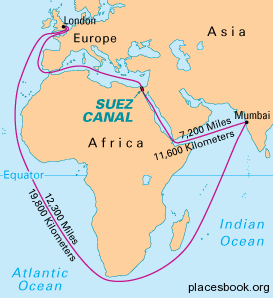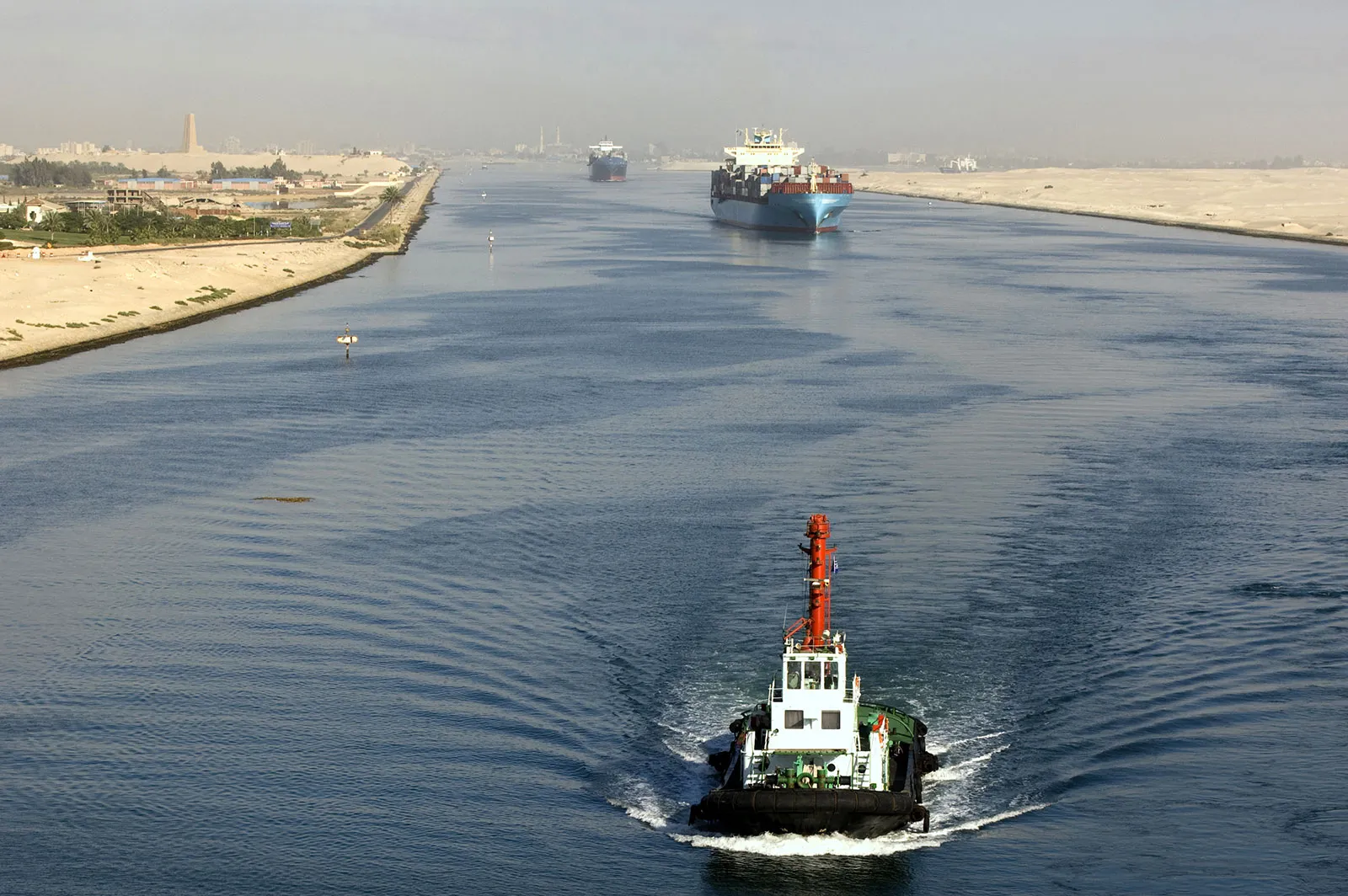The Suez Canal, often referred to as the “Lifeline of Egypt,” is a marvel of engineering that has played a pivotal role in shaping global trade for over a century. Connecting the Mediterranean Sea to the Red Sea, this artificial waterway has not only significantly shortened maritime routes but has also facilitated the exchange of goods, cultures, and ideas across continents. In this article, we will look into the rich history of the Suez Canal, its impact on international trade, and its significance in today’s global economy.
Historical Perspective
The idea of connecting the Mediterranean and Red Seas dates back to ancient times. Pharaohs and emperors of antiquity dreamed of such a passage. However, it wasn’t until the 19th century that technological advancements and colonial ambitions converged to bring this vision to life.
Inaugurated in 1869, the Suez Canal was designed by the French engineer Ferdinand de Lesseps and funded by Egyptian labor and European capital. It quickly became a critical conduit for trade, cutting the voyage from Europe to Asia by thousands of kilometers, compared to the lengthy and perilous route around the southern tip of Africa. The canal’s construction not only transformed Egypt but also had profound effects on global trade dynamics.
Trade Revolution

The Suez Canal’s impact on global trade was immediate and profound. Before its completion, maritime trade between Europe and Asia was time-consuming, expensive, and fraught with risks. Ships had to brave the treacherous waters of the Cape of Good Hope, enduring storms and piracy. The canal changed all that, allowing vessels to avoid hazardous circumnavigation and reducing the voyage from Europe to Asia by several weeks.
This newfound efficiency revolutionized trade patterns. Europe could now reach the markets of Asia, including the lucrative markets of India and China, with unprecedented ease. Raw materials, manufactured goods, and ideas began flowing through the canal, creating new economic opportunities and fostering cultural exchanges.
Economic Impact
The economic significance of the Suez Canal for Egypt cannot be overstated. The canal provided the Egyptian government with a reliable source of revenue, as it collected tolls from passing ships. This income financed critical infrastructure projects, modernizing Egypt and improving living standards for its people.
Moreover, the canal played a crucial role in positioning Egypt as a strategic player on the global stage. It attracted foreign investment, established Egypt as a trade hub, and facilitated the movement of people and goods from various parts of the world. This internationalization significantly contributed to Egypt’s economic growth and diversification.
Challenges and Conflicts

Despite its undeniable benefits, the Suez Canal has also been a source of controversy and conflict. The canal has been at the center of geopolitical struggles, with various powers vying for control over this vital waterway. The most notable conflict occurred during the Suez Crisis of 1956 when Egypt nationalized the canal, leading to a military intervention by Britain, France, and Israel.
The Suez Crisis was a turning point in the canal’s history. It underscored the importance of maintaining international access to the waterway while also highlighting the need for decolonization and respect for national sovereignty. Ultimately, the United Nations played a pivotal role in resolving the crisis, reaffirming the principle of free and open navigation through the canal.
Modern Significance
In the 21st century, the Suez Canal continues to be a linchpin of global trade. It has undergone significant expansion and modernization efforts to accommodate larger vessels, including the “New Suez Canal” which opened in 2015. This expansion has not only increased the canal’s capacity but has also reduced waiting times for ships, further boosting its efficiency.
The canal remains one of the busiest waterways in the world, with thousands of vessels passing through each year, carrying goods ranging from oil and natural gas to consumer products and raw materials. Its strategic location ensures that it remains a vital part of the global supply chain.
The Suez Canal, with its rich history and enduring importance, stands as a testament to human ingenuity and the power of connectivity. From its humble beginnings as a dream of ancient rulers to its modern role as a global trade artery, the canal has shaped the world in profound ways.
Today, as we navigate the complex waters of the global economy, it is essential to recognize the Suez Canal’s role in fostering cooperation, trade, and cultural exchange among nations. It serves as a reminder that even in a rapidly changing world, the past continues to influence the present, and the bonds of international commerce remain as strong as ever, flowing through this iconic waterway.



